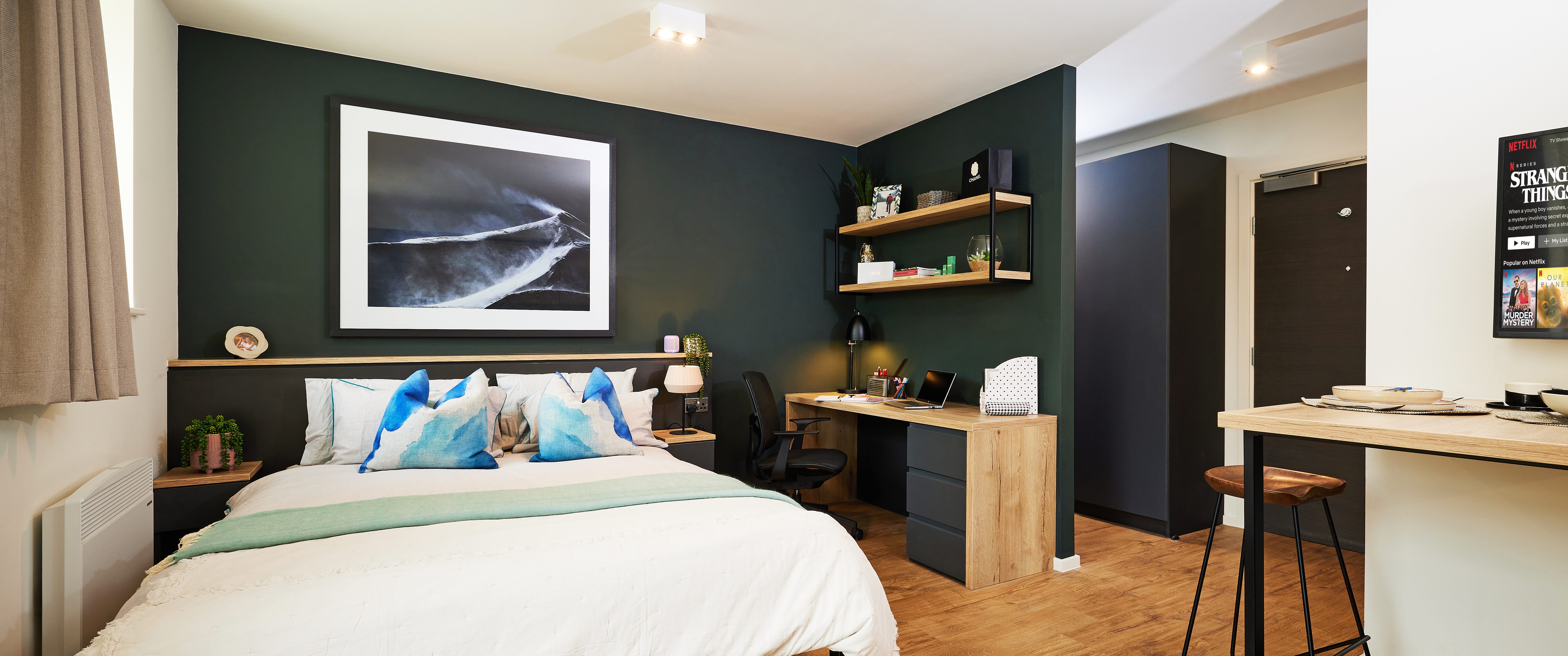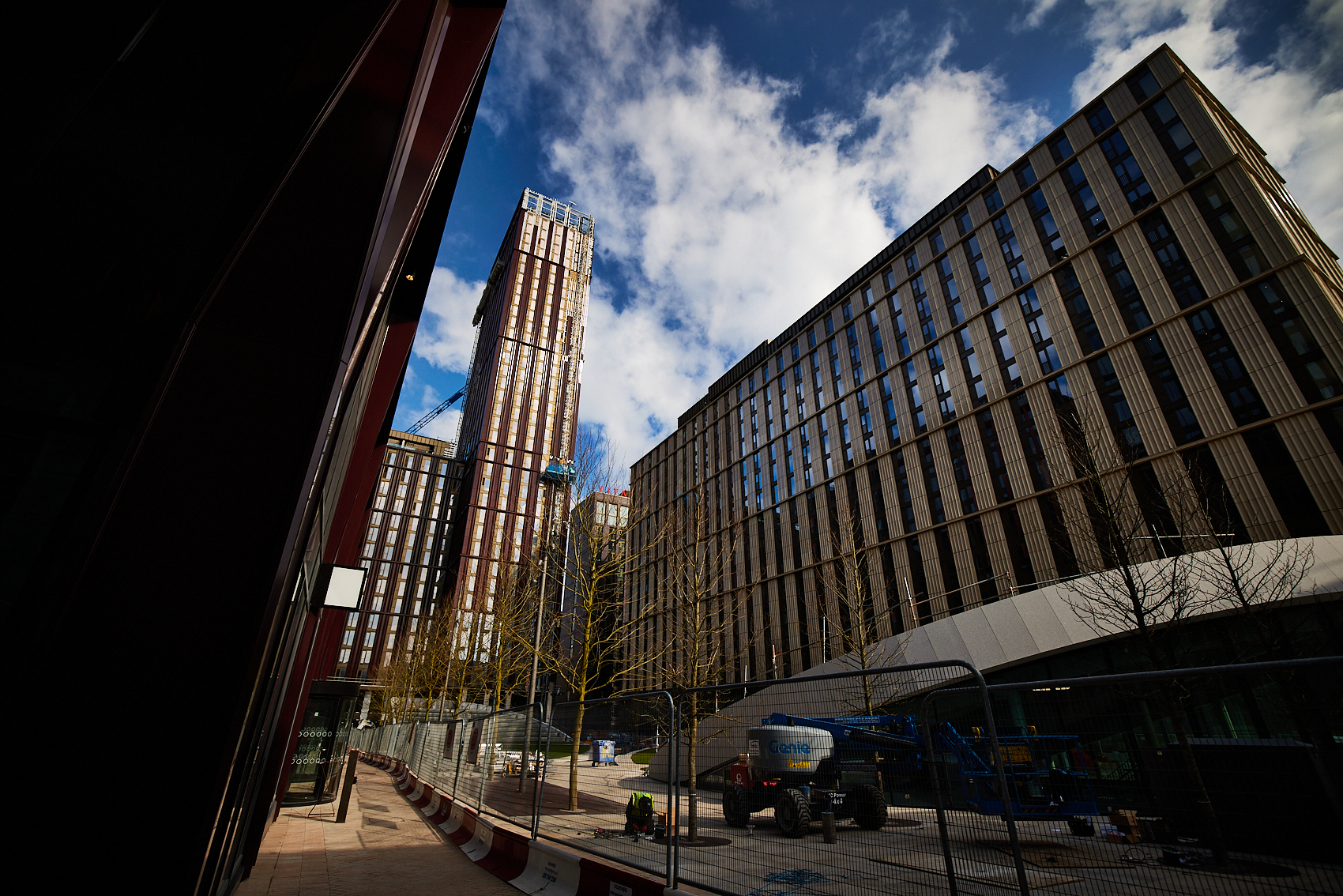Whether you’re an international student moving to the UK to study or the first in your family to go to university, understanding student accommodation options in the UK can be a minefield.
It’s really important to choose the right type of place for you, as where you live will shape your experience hugely – for better or worse. University can be costly (especially for international students), so you want to ensure you get value for money and you enhance your university experience by living somewhere you love.
While there are plenty of options for student living, you might not know the key differences between the types of accommodation available in the UK. In this guide, we’ll explain the four main types of student accommodation, so that you can start university in the best place for you.
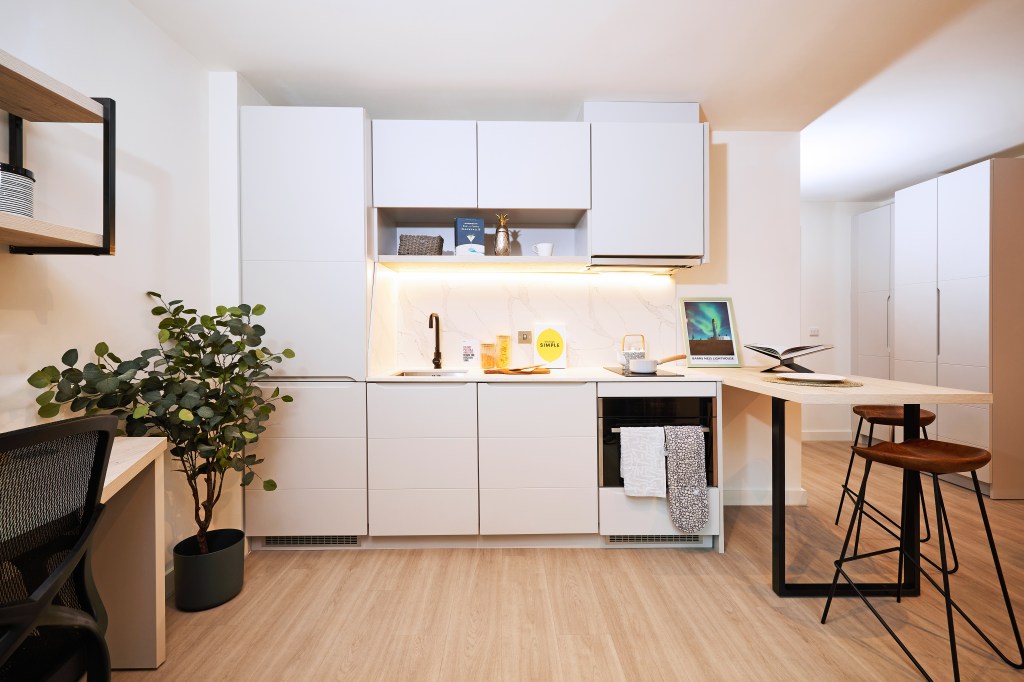
Generally, student accommodation is split into four types;
1. University-owned accommodation (halls)
2. Private house-shares (HMOs)
3. Rented apartments (BTRs)
4. Purpose-built student accommodation (PBSAs)
Let’s take a closer look at all four types and compare.
Types of Student Accommodation
University-owned accommodation (halls)

Accommodation owned by the university is referred to as “halls” in the UK. This accommodation is either located on campus or very close to campus. Halls are usually only available to first-year students, who will be randomly allocated a room with a group of other students they don’t know on their first day.
In most halls, you will share a kitchen and bathroom with 3 up to 10 people. This can be a great way to meet new friends when you start university but can be a difficult living situation if you are grouped with students that you don’t get on with. In some halls, you could be paired with another person in a dorm-style shared room.
The prices of halls can vary, depending on the city and the quality of the accommodation – they tend to be cheaper than BTRs and PBSAs, but this isn’t always the case. University halls are usually more basic when it comes to aesthetics, however, are always fully furnished, unlike some HMOs and BTRs. While they are a very convenient option when it comes to travelling to university, they can also be very noisy environments as lots of students host parties in their halls.
Halls are normally inclusive of utility bills, however don’t include any added extras like a gym membership, events, or have any other exclusive benefits like you would find in PBSAs.
Private House-Shares (HMOs)

HMO stands for house of multiple occupancy – so these are properties owned by private landlords or managed through an estate agent. HMOs tend to be more popular for second and third-year students and usually accommodate from 4 up to 10 students.
This type of accommodation is almost always the cheaper option when it comes to monthly rent. However, HMOs don’t normally include utility bills or added perks like gym memberships or cleaning.
HMOs are often located slightly outside of the city centre, so can be further away from university campuses. Some HMOs are in buzzing student areas, however, it is possible that you would spend more time and money travelling to university than if you were staying in university halls or PBSA.
This accommodation is more popular among second and third-year students as they might already have a group of friends that they want to live with – so this arrangement can offer a good opportunity for socialising and fostering close-knit communities. Living in a house-share can allow a greater sense of autonomy and independence, however, it also requires more involvement in managing utilities, maintenance, and communal spaces, which can sometimes lead to conflicts over responsibilities and upkeep. There are usually communal areas like living rooms and dining rooms in HMOs, but not always. Sometimes landlords convert living rooms into bedrooms, to maximise their earning potential.
Additionally, since HMOs can house up to 10 people, you may end up sharing with people you don’t know. Not only does this raise questions about safety and security, but it can cause issues if you house-share with people who aren’t similar to you. For example, if you like to wake up early to study, but your housemates are party animals, it may impact your ability to sleep.
Without a management company, these kinds of issues can be difficult to resolve as you will be locked into a contract with no option to move if there’s an issue. Also, as HMOs are privately owned, the quality can differ greatly between houses. Some will be fine, but some could be awful. Many students in the UK end up living in mouldy, unclean houses which impacts their experience and their health massively.
Rented apartments (BTRs)
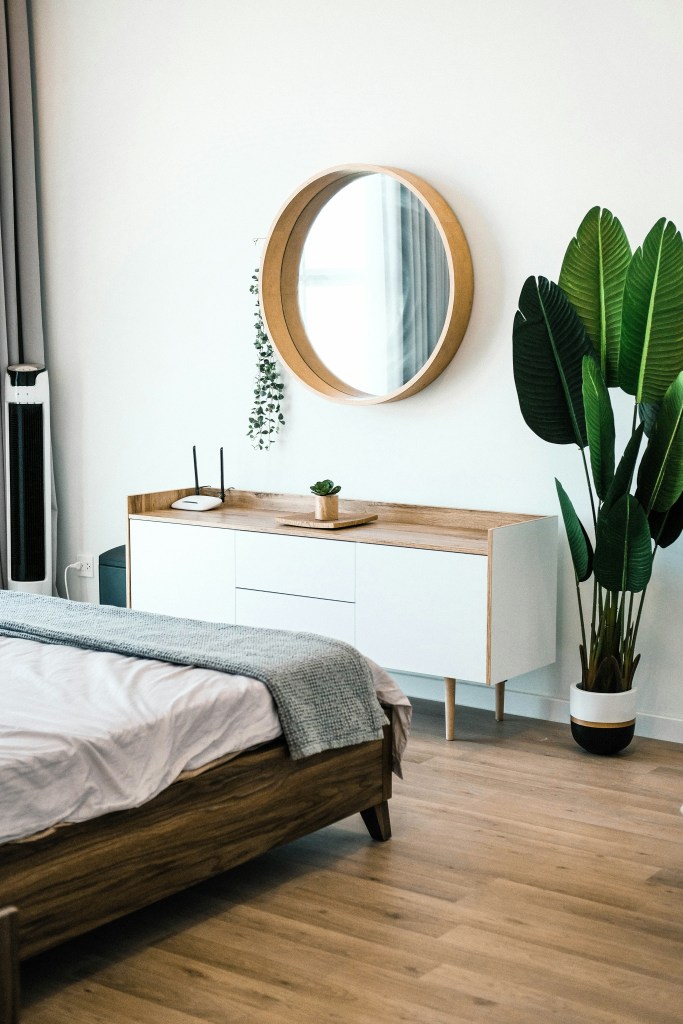
BTR, or build-to-rent apartments are properties that are usually more suited to professionals rather than students, however, some students choose to live here for a quieter environment or because no other accommodation is available.
BTRs tend to be more centrally located and of better quality than HMOs, as normally there will be a management company ensuring the spaces are well-kept and clean. This isn’t always the case, but there tends to be a better experience when it comes to maintenance than in HMOs.
Bills aren’t usually included in BTR apartments, so you can expect added costs towards utilities, TV licenses, internet etc. The cost of monthly rent in BTRs is usually a lot higher than in HMOs and university halls too.
This type of living will almost always be quieter than student accommodation, as the people living in it will be going to work every day and likely going to sleep earlier than students. While this could be beneficial for some students, this type of accommodation isn’t suitable for most students because it isn’t created to build communities. A huge part of the university experience is about meeting other students, but this is made a lot harder if you live away from your peers.
Also, because these apartments are built with working professionals in mind, they won’t have spaces like private study rooms, private dining rooms, or group study rooms. Some BTRs do have communal spaces, but they won’t be tailored for the average student’s needs.
Purpose-built student accommodation (PBSA)
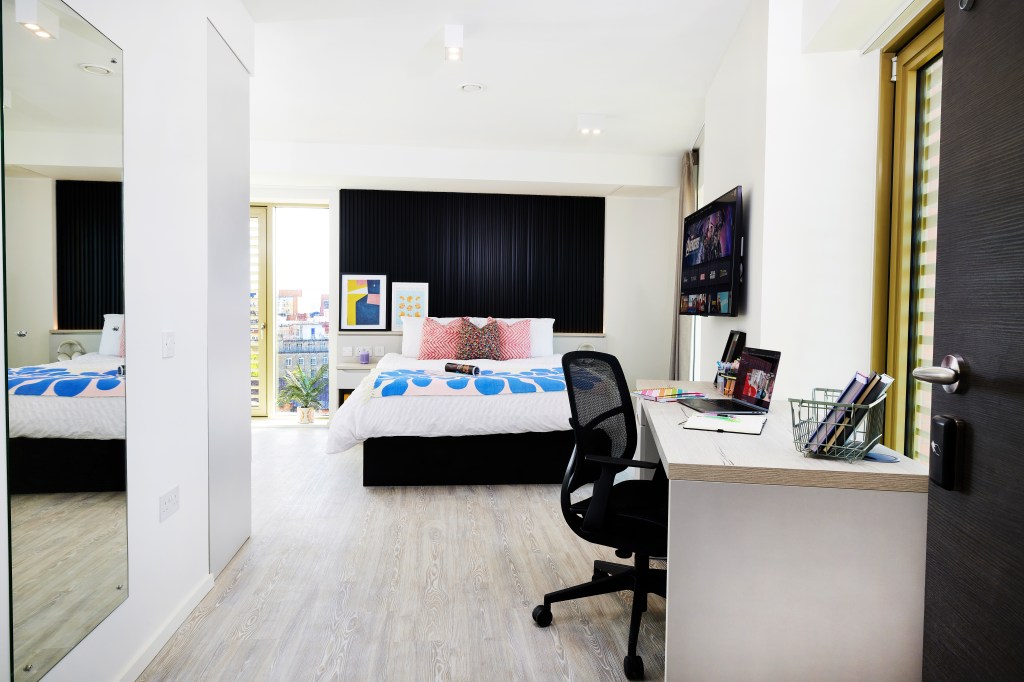
Purpose-built student accommodation (PBSA), like Vita Student, is accommodation that was designed specifically for university students. In this type of accommodation, you usually have the option to live in either shared or studio apartments – so you can decide to live on your own, with a group of friends, a partner, or you can be allocated a room to meet new friends.
The location of PBSAs tends to be more central and within walking distance to university campuses. PBSAs will never be located directly on campus, however they are usually always very close.
These types of accommodations often come with amenities for students like gyms, study rooms, communal areas, and laundry facilities. At Vita Student, we have all of these facilities included, plus added extras like private dining rooms, cinema rooms, dance studios and outdoor spaces.

Purpose-built accommodations will have higher safety and security measures compared to other student accommodation options – often featuring CCTV and secure entry systems. At Vita Student, we have all of this, including key-fob access and 24/7 staff to ensure you’re safe and secure while living with us.
You will notice that PBSA looks more expensive upfront, however, utility bills are usually included in the monthly rent, so you won’t need to worry about paying extra for water, gas, or internet. At Vita Student, you even get fortnightly housekeeping, weekday breakfast, events, and contents insurance included in your instalments.
Another reason that PBSA is slightly more expensive compared to HMOs and halls, is simply because the overall standard of living is higher. There are usually better facilities that are designed to a higher spec than other options. At Vita Student, we create spaces that not only look amazing but also inspire you to achieve your best at university.
| Accommodation Type | Pros | Cons |
| University-owned accommodation (halls) |
|
|
| Private house-shares (HMOs) |
|
|
| Rented apartments (BTRs) |
|
|
| Purpose-built student accommodation (PBSAs) |
|
|
So, those are the main points of difference between HMOs, halls, BTRs and PBSAs. If you plan to come to university in the UK this September, Vita Student is located in all of the UK’s biggest student cities. Check out the full list or answer a few questions to find your dream room for 24/25.
